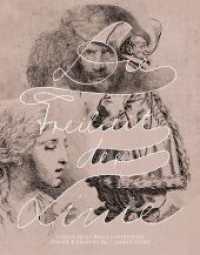Full Description
The rediscovery of Pompeii and Herculaneum in the eighteenth century challenged European assumptions about ancient life; just as influential, if quieter, was the revolution caused by translations of Greek tragedy. Art of the mid-eighteenth to early nineteenth centuries dealt with the violence and seeming irrationality of tragic action as an account of the rituals and beliefs of a foreign culture, worshipping strange gods and enacting unfamiliar customs. The result was a focus on the radical difference of the past which, however, was thought to still have something to teach us: not how to live better, but that we live differently and should allow others to do so as well. In recognizing tragedy as an alien cultural form, modern Europe recognized its own historical status as one culture among many.
Naturally, this insight was resisted. Greek tragedy was seldom performed. In painting, it lived a shadow existence alongside more didactic subject matter, emerging explicitly only in a corpus of wash drawings by Anglo-Swiss artist Henry Fuseli (1741-1825), and an international circle of artists active in Rome in the 1770s. In this volume, Pop examines Fuseli as exemplary of a pluralist classicism, paying especial attention to his experiments with moral and aesthetic conventions in the more private medium of drawing. He analyses this broad view of culture through the lens of Fuseli's life and work; his remarkable acquaintances Emma Hamilton, Erasmus Darwin, and Mary Wollstonecraft, and the great theorists of art and morals to whom he responded, Jean-Jacques Rousseau, Johann Joachim Winckelmann, and David Hume, play prominent roles in this investigation of how antiquity became modern.
Contents
Introduction: Classicism and its Discontents ; 1. Tragedy, the Cultural Relativism of Henry Fuseli ; 2. Grave Monuments, Writing, and the Antique Present ; 3. Comedy, Dreaming, and the Sympathetic Spectator ; 4. Winckelmann's Fake and Activist Neoclassicism ; 5. The Satyr Play, or Naturalizing Human Nature ; 6. Ordinary Antiquity ; Conclusion ; Appendix I: Fuseli and Herder ; Appendix II: Fuseli and Homer ; Bibliography ; Index






